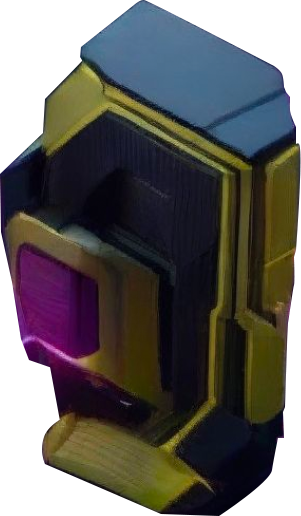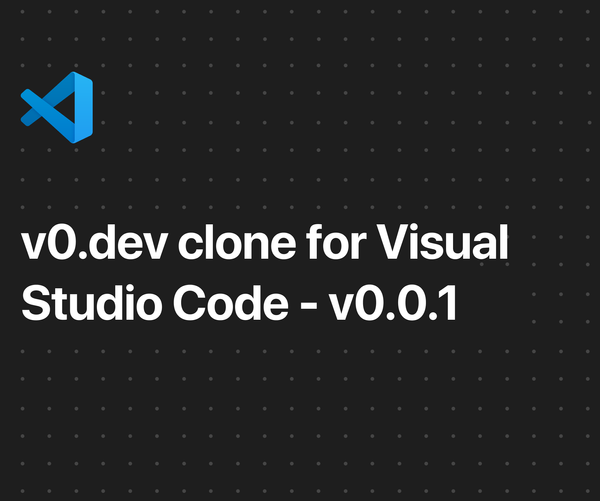Build games in Swift

Going down the memory lane of child play, I think of the days when the world seemed so much bigger from a little boy’s eyes playing Temple Run on a borrowed iPhone - a work of enormous wonderment. Lost in the labyrinth of my favourite video game, I yearned to be part of its magical universe. A single thought endlessly echoed in my mind: "How is this game created? I want to make games like this!"
As the years passed and I grew, it was no surprise that I found myself on the path of a developer. With each step, I honed my skills and explored various avenues. But destiny had a plan of its own, and it led me to the realm of Swift. Perhaps the little boy within me had awakened to redirect me to a path I was destined to tread. And there, I discovered Swift, Apple's remarkably user-friendly programming language, waiting to breathe life into those long-cherished dreams.
As Apple dives further into entertainment and gaming with hardware like the VisionPro, and with its own custom M1 chips, we may see a surge of Apple-native gaming engines, a more refined Unity and Unreal, machine learning frameworks, and perhaps, a new era of desktop and mobile gaming with Apple.
Let’s step into the world of gaming in Swift, uncovering the tools, frameworks, and tips that make it an exciting journey for budding game developers.
Starting off with a simple, thought provoking question - why Swift?
Blazing fast performance. Like a high-performance sports car in the programming world, it is built for speed and efficiency. When it comes to gaming, performance is key, and Swift ensures your games run seamlessly and without a hitch. Swift is optimized for Apple, and ships natively for all OSes - iOS, iPadOS, macOS, watchOS, to name a few.
Go beyond Apple devices. Originally designed for Apple gadgets, Swift has spread its wings. You can use it to create games not only for iOS and macOS but also for other platforms, reaching a broader audience. Making a greater impact.
Seamless integration. It plays harmoniously with Apple's tech toolbox, including SpriteKit, SceneKit, and ARKit. This synergy simplifies game development, letting you harness cutting-edge features with ease.
How does an app dev do game dev?
Game development is pretty similar to app development - it just involves more creative processes, however these can be easily mapped to one's app development pipeline:
- Idea Generation: Start with a spark of inspiration. Think about what kind of game you want to create. Is it a mind-bending puzzle, an adrenaline-pumping action-adventure, or perhaps a captivating simulation?
- Designing Gameplay: Outline the rules, objectives, and gameplay mechanics. Consider how players will interact with your game world.
- Coding with Swift: Dive into Swift to bring your ideas to life. Write the code that powers your game mechanics and characters.
- Testing and Tweaking: Games evolve through testing. Playtest your game, gather feedback, and make improvements.
- Polishing Graphics and Sound: Create captivating visuals and immersive audio to make your game come alive.
- Launching Your Creation: When your game is ready, launch it and share it with the gaming community. Embrace player feedback to enhance your creation.
While Swift is a great choice for game development, like anything in life, it certainly its has its cons, I have enlisted some below:
- Platform Limitations: While Swift has expanded its horizons, it's still primarily associated with Apple platforms.
- Types of Games: Swift seems better for point-and-click games, puzzle games, and games with native UI. Swift may not be a good choice for complex games involving interactions and physics-based game mechanics. While there are open-source game engines in Swift like GateEngine available, their support is limited and it's just good for pet projects.
- Learning Curve: Learning Swift and game development can be a bit challenging, especially for beginners.
- Resource Availability: The Swift game development community is smaller compared to other game development languages like Unity or Unreal Engine.
On the flipside, opting for a native programming language like Swift over web technologies offers several advantages:
- Performance: Native languages are finely tuned for specific platforms, delivering superior performance compared to web-based technologies that run in a web browser.
- Access to Hardware: Native languages have direct access to hardware resources, enabling more efficient utilization of device capabilities such as graphics and sensors.
- Offline Play: Native games can be enjoyed offline, ensuring a seamless gaming experience without needing an internet connection.
- Platform Integration: Native languages offer deeper integration with platform-specific features and libraries, resulting in a more polished and immersive gaming experience.
Taking Swift game development a step further, my team built PlayroomKit's SDK for Swift, enabling easy multiplayer between platforms. This groundbreaking advancement involves wrapping a JavaScript SDK in Swift, providing you with the ability to seamlessly incorporate web technologies into your Swift-based games. This, in turn, opens up opportunities for cross-platform gameplay, expanding your game's reach to even greater heights.
To showcase the power of PlayroomKit, we integrated it into a TicTacToe game. Simple, yet engaging. The result? A fun and interactive gaming experience that seamlessly combines the best of both worlds: Swift and web technologies.
Swift - a secret doorway to your (I mean our) game development dreams. Whether you're painting 2D wonders with SpriteKit, exploring 3D universes with SceneKit, or unleashing your creativity with Metal, Swift equips you with the tools to make your gaming visions come alive.
With passion, creativity, and a bit of Swift know-how, you're set for an incredible journey into the world of game development. Get ready to craft experiences that captivate players, bring joy, and make your mark in the gaming universe. It's time to let your gaming adventures begin!
Author: Engr Sajid Khalil
Editor: Fatima Majid



